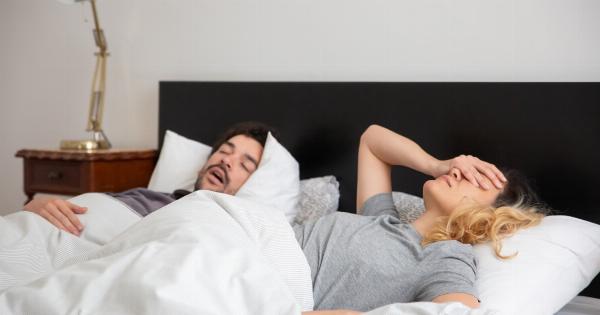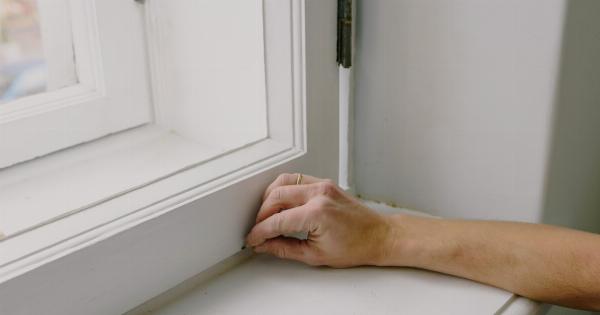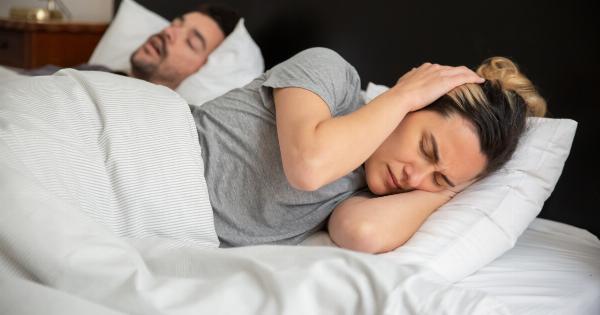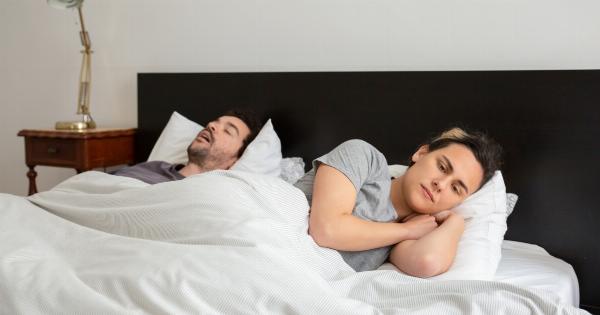Snoring can be an annoying habit, not just for you but also for your partner or anyone who shares the same room with you. The good news is that snoring can be treated and there are various tips that can help you ease your snoring habit.
Here are some of them:.
1. Change your sleeping position
One of the most effective ways to reduce snoring is to change your sleeping position. Lying on your back can make your tongue and soft palate collapse to the back of your throat, obstructing the airway and causing you to snore.
Sleeping on your side can help reduce the chances of this happening. You can also try to elevate your head by using a thicker pillow, or by propping the head of your bed up a few inches.
2. Avoid alcohol and sedatives
Alcohol and sedatives can relax the muscles in your throat, making it more likely for you to snore. That’s why it’s important to avoid drinking alcohol and taking sedatives before bedtime.
If you need to take medication that can cause drowsiness, try taking it a few hours before bedtime so that its effects have worn off by the time you go to sleep.
3. Keep your nasal passages clear
If you have a stuffy nose, you’re more likely to snore. That’s because when you breathe through your mouth, the air moves more quickly, causing the tissues in your throat to vibrate and produce the snoring sound.
To keep your nasal passages clear, you can use a saline nasal spray, a neti pot, or take a hot shower before bedtime. You can also try using a nasal strip to help open your nasal passages.
4. Lose weight
If you’re overweight, you’re more likely to snore because the excess tissue in your throat can narrow your airway. Losing weight can help reduce the amount of tissue in your throat, making it less likely for you to snore.
Even a small amount of weight loss can make a significant difference in reducing snoring.
5. Practice good sleep hygiene
Establishing good sleep hygiene can help improve the quality of your sleep and reduce snoring.
Some tips for good sleep hygiene include maintaining a regular sleep schedule, avoiding caffeine and nicotine before bedtime, creating a relaxing sleep environment, and avoiding electronic devices before bedtime.
6. Try throat exercises
Throat exercises can help strengthen the muscles in your throat, reducing the chances of snoring. One simple exercise you can try is to repeatedly pronounce the vowel sounds (“a-e-i-o-u”) for a few minutes a day.
Another exercise involves sticking your tongue out as far as possible and holding it for a few seconds, then repeating several times.
7. Use a humidifier
Dry air can irritate the tissues in your throat, making it more likely for you to snore. Using a humidifier can help moisten the air, reducing the chances of snoring. You can also try using a steam inhalation to help moisten your nasal passages.
8. Treat allergies and congestion
Allergies and congestion can make it more difficult for you to breathe through your nose, leading to snoring. If you have allergies, make sure to take your medication as prescribed.
You can also try using a nasal decongestant or antihistamine to help reduce congestion.
9. Consider using anti-snoring devices
There are various anti-snoring devices available in the market that can help reduce snoring. Some examples include nasal dilators, mouth guards, and chin straps. These devices work by opening up the airway, making it easier to breathe without snoring.
10. Consult a doctor
If your snoring habit persists despite trying various tips and remedies, it’s important to consult a doctor. Snoring can sometimes be a symptom of a more serious condition, such as sleep apnea.
Your doctor can help diagnose the underlying cause of your snoring and recommend the appropriate treatment.





























